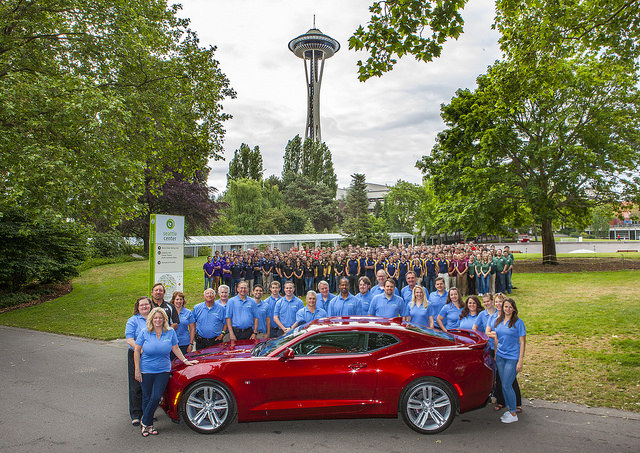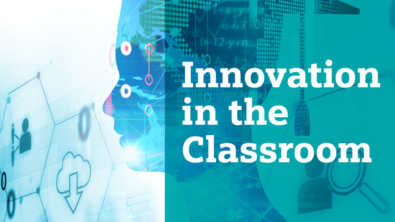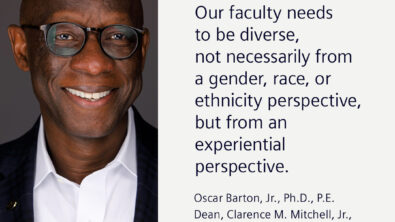Fostering the Pipeline of Engineering Talent through EcoCAR 3

In the growing need for Science, Technology, Engineering and Mathematics (STEM) workforce, industries are in search for a stronger pipeline of technical talent. As university students jump into the job market, those with real-world experience are more likely to be heavily recruited.
EcoCAR 3 is a collegiate automotive engineering competition sponsored by the U.S. Department of Energy that provides students with the real-world tools and training to prepare them for their profession. EcoCAR 3 is the latest Advance Vehicle Technology Competitions (AVTCs) that challenge 16 universities across North America to reengineer an iconic American muscle car into a hybrid vehicle.
General Motors donated a 2016 Chevrolet Camaro to each of the teams and provides them with the NX CAD file for engineering modifications. During the four years of competition, EcoCAR 3 teams develop and integrate energy efficient powertrains that maximize performance yet retain the safety and consumer standards of the Camaro. Sponsors at various levels provide teams with the real-world tools where they need, including software, hardware, training and support.
Starting with the ChallengeX competition, Siemens PLM Software has been a primary sponsor for AVTCs for more than 10 years, providing millions of dollars of in-kind software grants of NX™ and Teamcenter® software.
“EcoCAR is a very unique competition,” said Dora Smith, director of Siemens PLM Software’s Global Academic Partner Program. “It brings together government, industry and academia to solve complex real-world challenges. With EcoCAR 3, students get to work on a real vehicle with the real digital data behind it. This real-world application leads to innovation and ensures they will be highly trained and heavily recruited by our customers.”
During EcoCAR 3 Year One, students selected the vehicle components and architecture to design the virtual model of the vehicle.
The University of Alabama team recognized as the “Team to Watch” by the competition organizers says the product lifecycle management software by Siemens is invaluable.
Kailey Crosby, project manager of University of Alabama, said the team uses NX to draw components that are fabricated and implemented in the vehicle. All this information is open to the other members unrestricted by location, Crosby said.
With access to NX and Teamcenter, students can successfully tackle the challenge to build a hybrid sports vehicle.
Embry-Riddle Aeronautical University mechanical team member Eddie Room says NX is helpful because of its user-friendliness, which makes it easy to learn and adopt the program.
“The Siemens PLM software is good for…the user friendliness with making components and making components on the fly, and of course, user friendliness when it comes to learning the software” Rooms said.
University of Tennessee mechanical team member George Quarteng Mensah also says NX’s capabilities are superior to other software.
“I’ve used about three different kinds of computer-aided-design software,” Quarteng Mensah said.” and NX has the most capabilities I’ve come across.”
However, what is more important is the reliability and willingness to support.
“Siemens provides us with support, on top of the software, not just software itself,” Crosby said. “And that’s been a huge help to our team to have someone to speak with.”
The 16 teams’ presentations demonstrating their outstanding achievements amazed the judges.
“I was impressed by the level of skills and thoughtfulness of the students,” said Jerry Sarfati, a judge of the mechanical systems presentation. As the first time AVTCs attendee, Sarfati said he was impressed with the students’ ability to use the industry software, which will help them in the real-world.
“I am excited to see how the students will progress next year,” Sarfati said.
Year One competition ended on June 5, 2015 in Seattle, announcing the Ohio State University as the overall winning team. Virginia Tech and University of Waterloo placed second and third respectively.
The support of Siemens PLM Software to help students become the next generation of the engineering professionals will continue for the remaining and beyond three years of the competition.
Learn more about the other academic projects and competitions Siemens supports at http://www.plm.automation.siemens.com/en_us/academic/projects-competitions/index.shtml.



